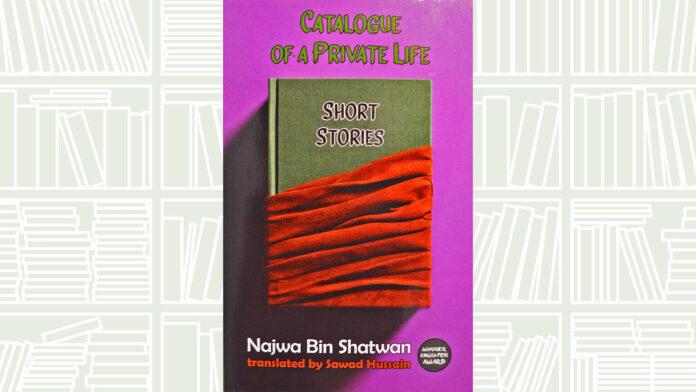CHICAGO: “Catalogue of a Private Life” is a collection of short stories by one of Libya’s most acclaimed authors, Najwa Bin Shatwan.
She is the first Libyan to be shortlisted for the International Prize for Arabic Fiction. Her collection has been translated into English by award-winning translator Sawad Hussain, and each of the eight tales teeter between historical and fictional, and real and surreal as they move from rooted centuries-old villages to futuristic traveling cities.
The collection begins in Ajdabiya, Libya, a village which residents consider a city for the centuries it has stood. Baqrallah and his family live a traditional life where his word is final, his mother is the only woman he listens to, his wife is unhappy because he never considers her opinion, and a folly of girls follow duty because they threaten to bring him ill-repute until they marry. While Baqrallah is out, a thief enters his house with only the women and a young boy to deal with him. Never having seen the world nor being in the presence of a stranger, the women deal with the thief cautiously and curiously. Their existence is hidden in a patriarchal cloud where even a little semblance of life is worth the pain of a lifetime.
The story moves to a bodyguard who dreams about killing the general he guards to take over a non-existent war with a non-existent enemy. Mercy is a distant dream when surrounded by weapons for a fight that has yet to materialize. Moving to Benghazi, Shatwan conveys a tale where politics reside parallel to reality, where warring factions torture those who suffer to live as they hold onto threads of love and hope to survive. Between the cow who starts a war, the refugees who seeks shelter in a school, and a marathon for Palestine, Shatwan’s stories paint a volatile and vulnerable picture of a people and a place steeped in uncertainty but for its history and resilience to survive.
Shatwan’s power comes in her ability to say so much with so few words, the impact of her fiction imbedded in reality and truth. The suffering of her characters who live ordinary lives is pushed to the fore as they live the best they know how. Her dialogue and context, which transports and transforms, such as the hopeful cinematographer who enjoys understanding different professions because they are “reincarnation” in a way, shows that her characters love life and all aspects of it. In a world that is unpredictable, Shatwan graces readers with eight ordinary stories with extraordinary insight.

